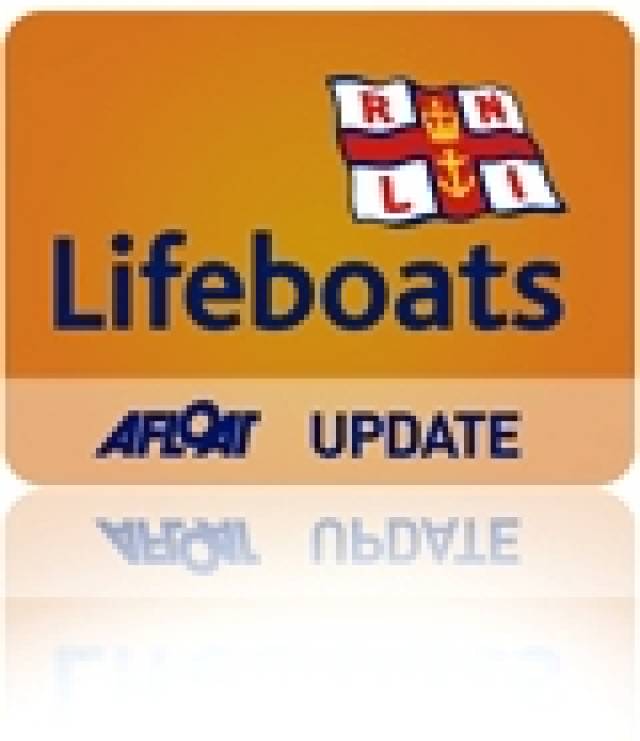#RNLI - The RNLI Annual Presentation of Awards took place last Thursday 22 May at London's Barbican Theatre, and in an unusual move the charity departed from the awards ceremony to look at the story behind one particular rescue.
On 18 September last year, Sam Cully's life was saved after the boat he was fishing in sank rapidly in Force 6 winds off the coast of Co Down.
That day RNLI lifeboat crew from Portaferry and Donaghadee, along with the Irish Coast Guard's helicopter Rescue 116, were involved in his rescue – but there were other groups and organisations behind the story.
While Cully waited for help to arrive, he was able to stay afloat wearing a personal flotation device (PFD) that he had received from a grant-aided scheme funded by the European Fisheries Fund, the Department of Agriculture and Rural Development, Asda, the Northern Ireland Fish Producers Organisation and Seafish.
Last week's awards event saw the RNLI brought everyone who was involved in saving Cully’s life together on one stage for the first time.
At the time of his rescue, Cully commented: "I was only able to swim five or 10 metres or so, and even then the wind and swell were washing me away from the shore.
"The boat went down so quickly, and I was so relieved to find the lifejacket doing exactly what I was told it would do. I cannot thank all those organisations involved enough."
RNLI chairman Charles Hunter-Pease introduced the following groups and organisations who all played a part in the rescue onto the Barbican stage: the Maritime Coast Agency’s Fishing Industry Safety Group, the Northern Ireland Fish Prodcuers Organisation, the Department of Agriculture and Rural Development, the RNLI’s Fishing Safety team, lifejacket and personal floatation manufacturers Mullion, Seafish and the Fisherman’s Mission.
The two RNLI lifeboat crews who responded to the emergency after being alerted by the coastguard were Portaferry and Donaghadee RNLI and they, too, were represented.
Coxswain Philip McNamara was present from Donaghadee lifeboat station and Portaferty RNLI were represented by deputy launching authority Lennie Lawson, shore crewmember Graham Edgar and lifeboat crew Marko Petrick, Sinead Breen and Paul Mageean. Luke Murphy, who was also on the lifeboat crew that day, was unable to be present.
Speaking after the event, Donaghadee RNLI coxswain McNamara said: "It was an honour to be present at the ceremony and surrounded by so many people working together to help fishermen stay safe at sea.
"This was a life saved on the day of the rescue but Sam gave himself every chance by wearing a life jacket and being prepared. Everyone on that stage was a lifesaver."
Poraferry RNLI's Lawson added: ‘It was a very moving occasion. It was lovely to be acknowledged in such good company. So many people work behind the scenes in the RNLI to make sure our lifeboats get to sea and we all do it voluntarily.
"In this instance the number of people behind the scenes was huge. This scheme has been very important to the fishing community and it shows that by working together we can save lives."
The evening ended with an emotional video tribute by Sam Cully, who then surprised the group on stage and the audience present by coming out with his wife Marie-Clare to thank everyone present in person.
Also honoured on the Barbican stage was Howth RNLI lifeboat operations manager Rupert Jeffares, who received a Bar to the Gold Badge, the second highest honour bestowed by the lifesaving charity.
































































